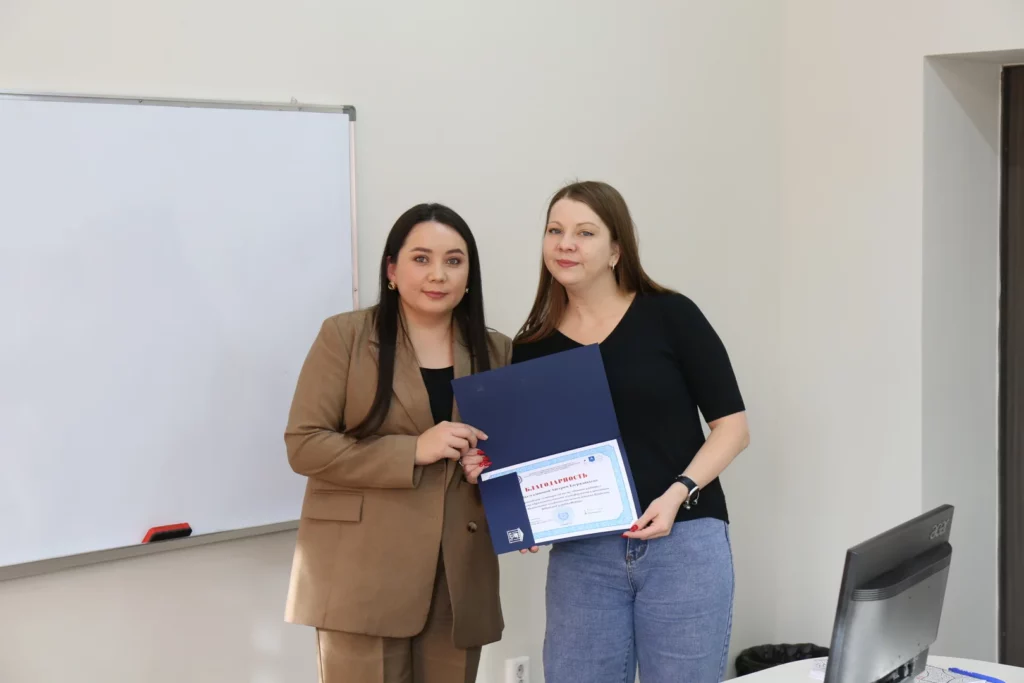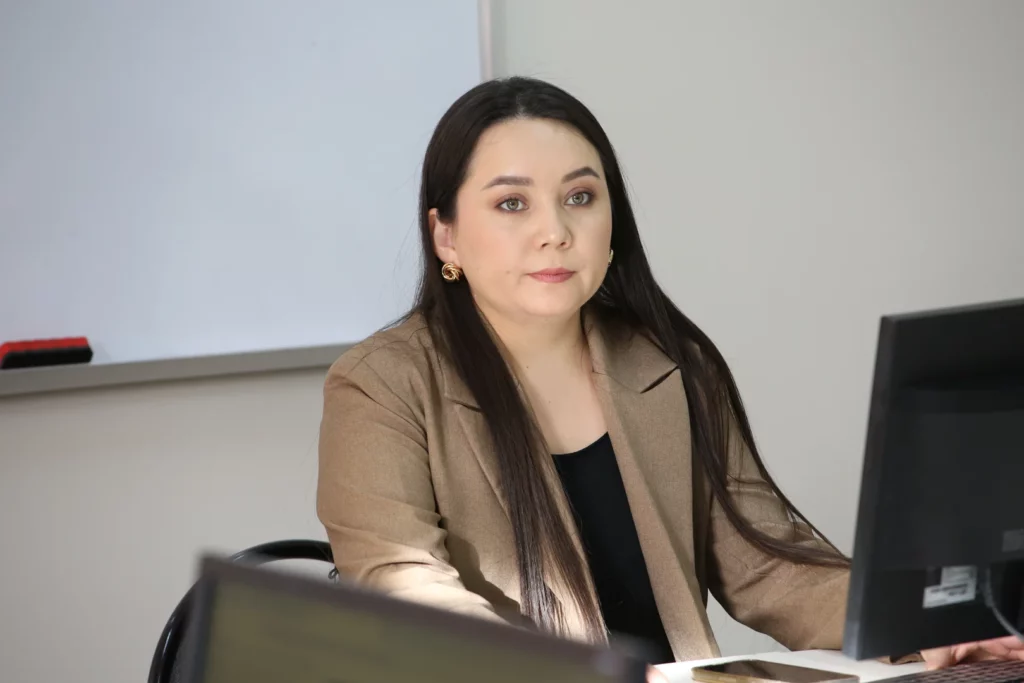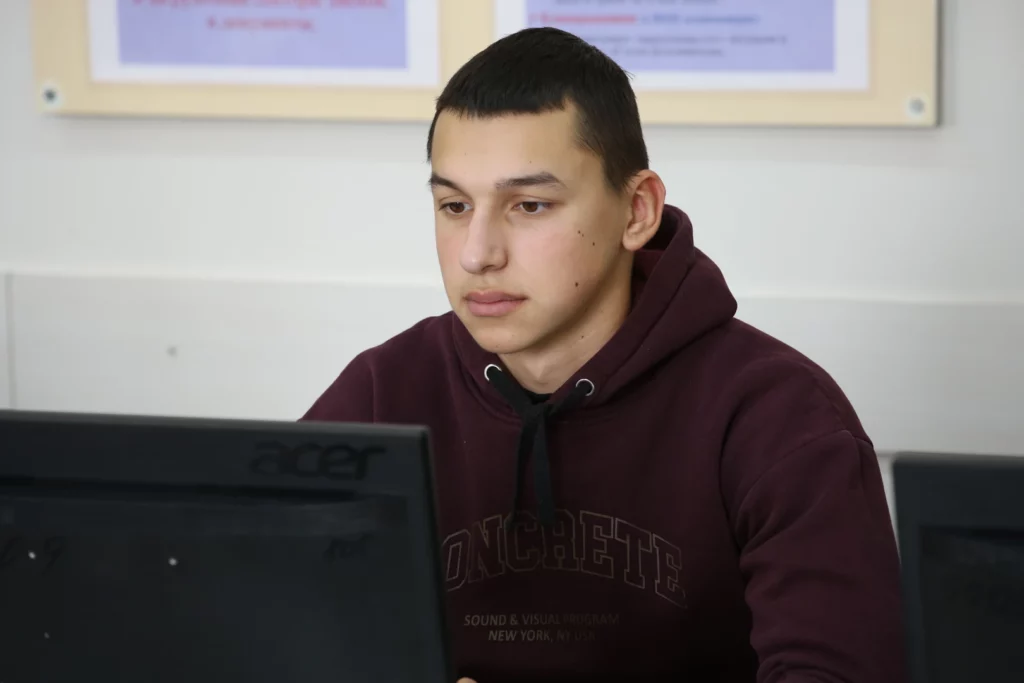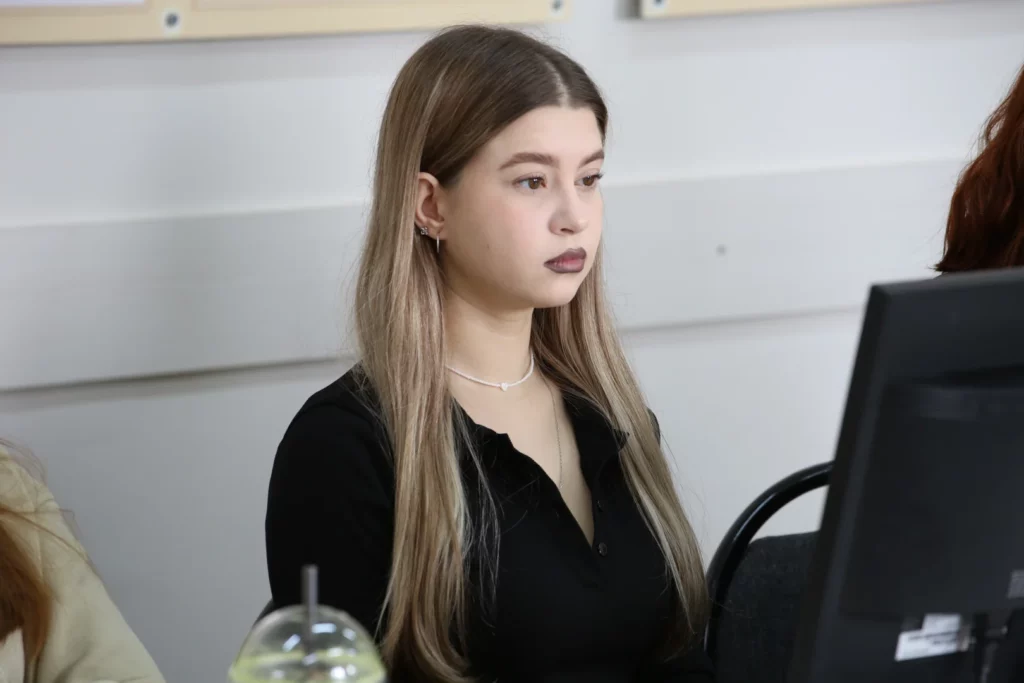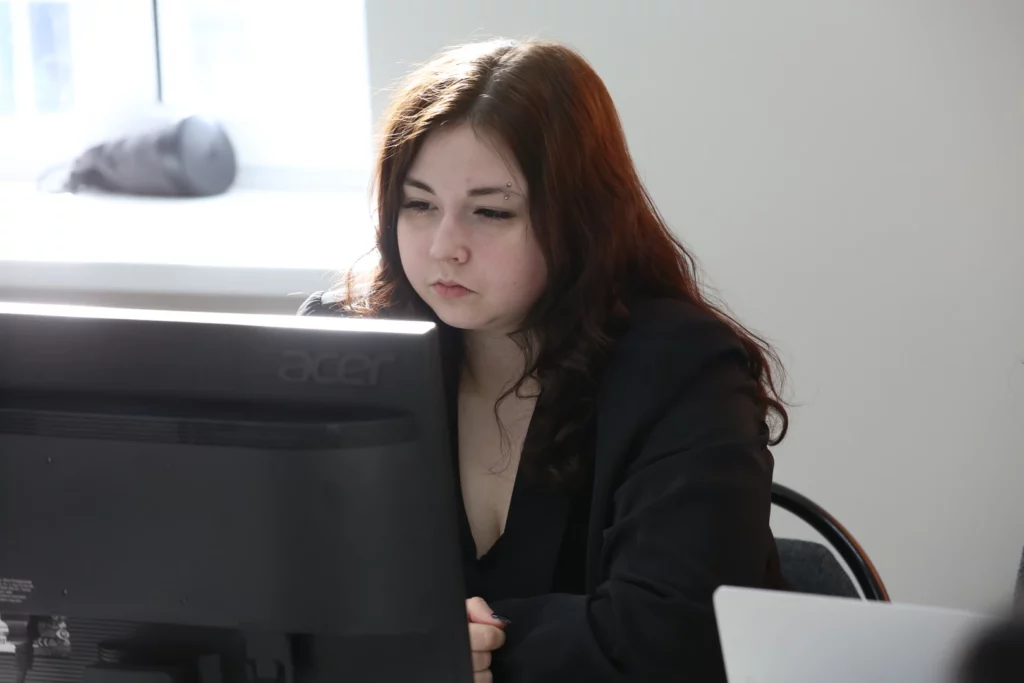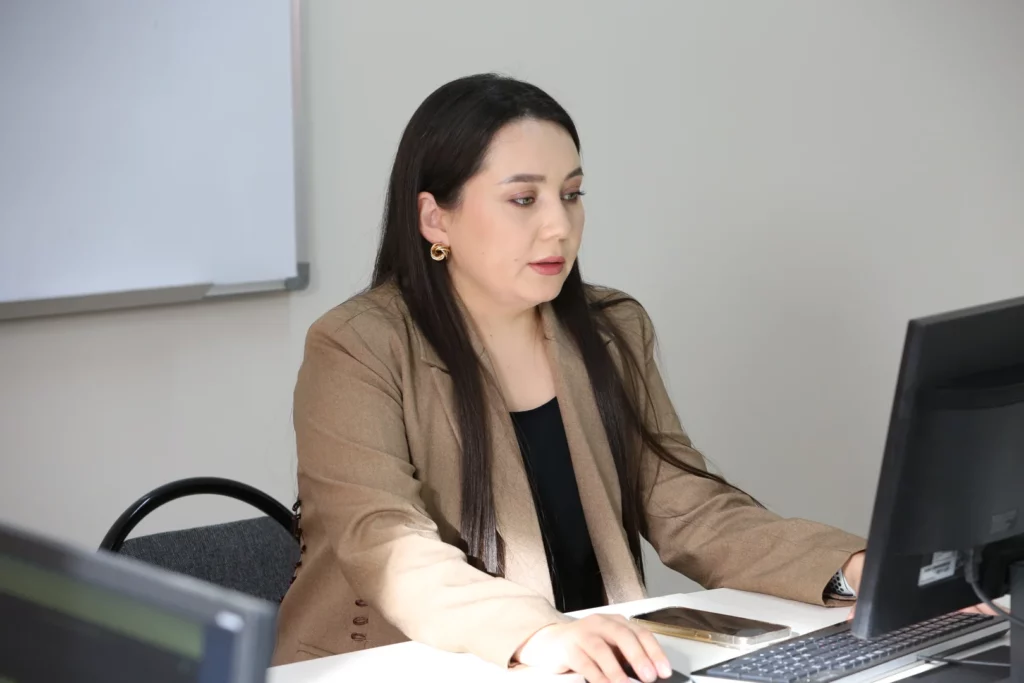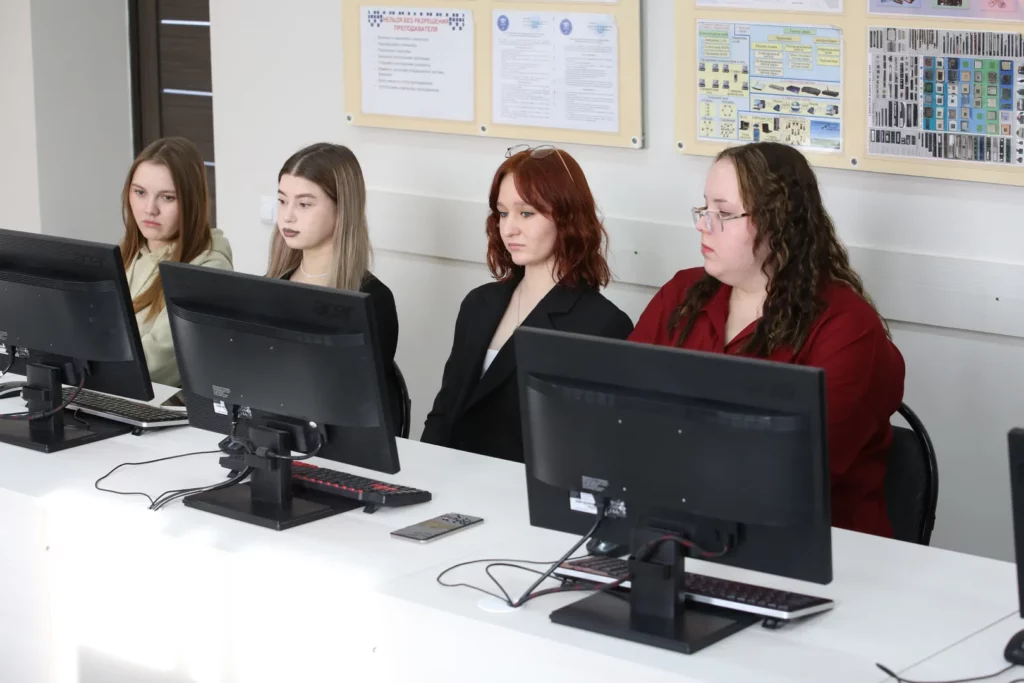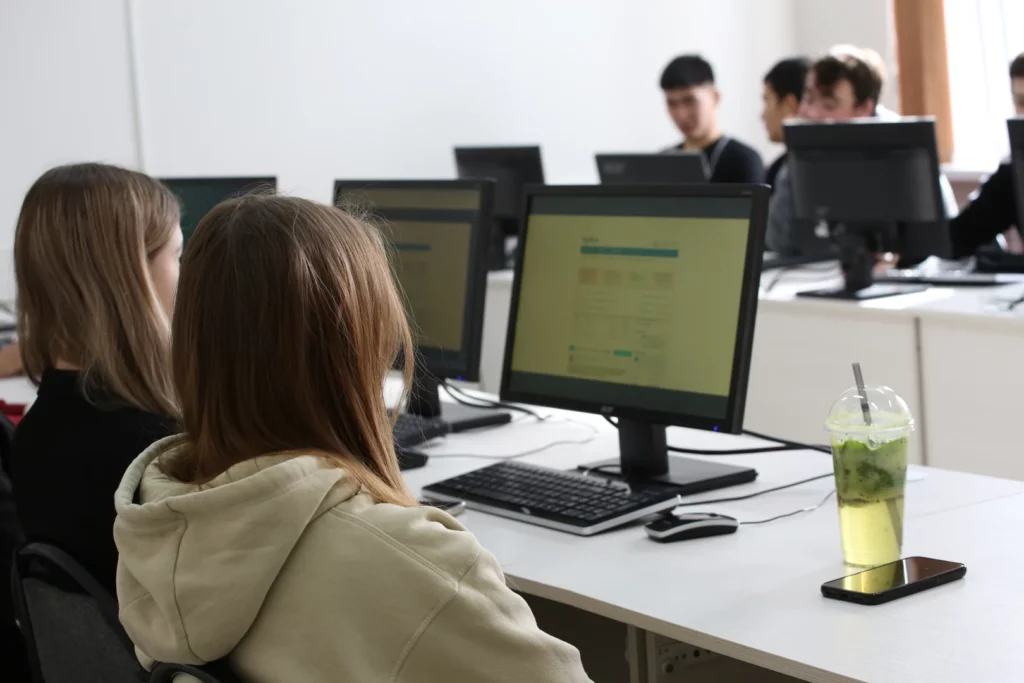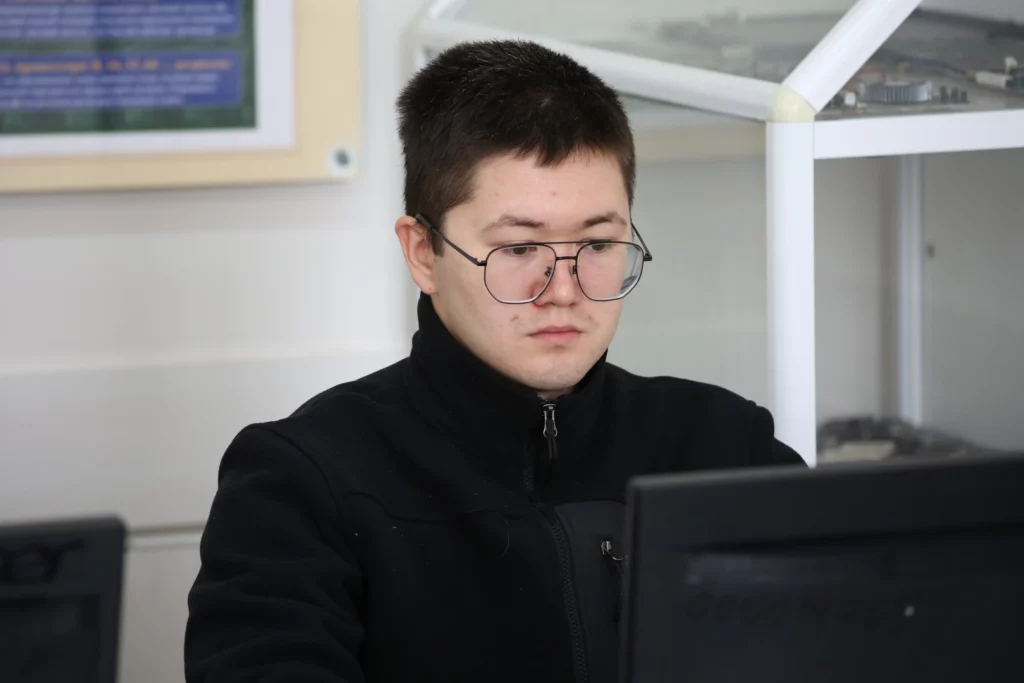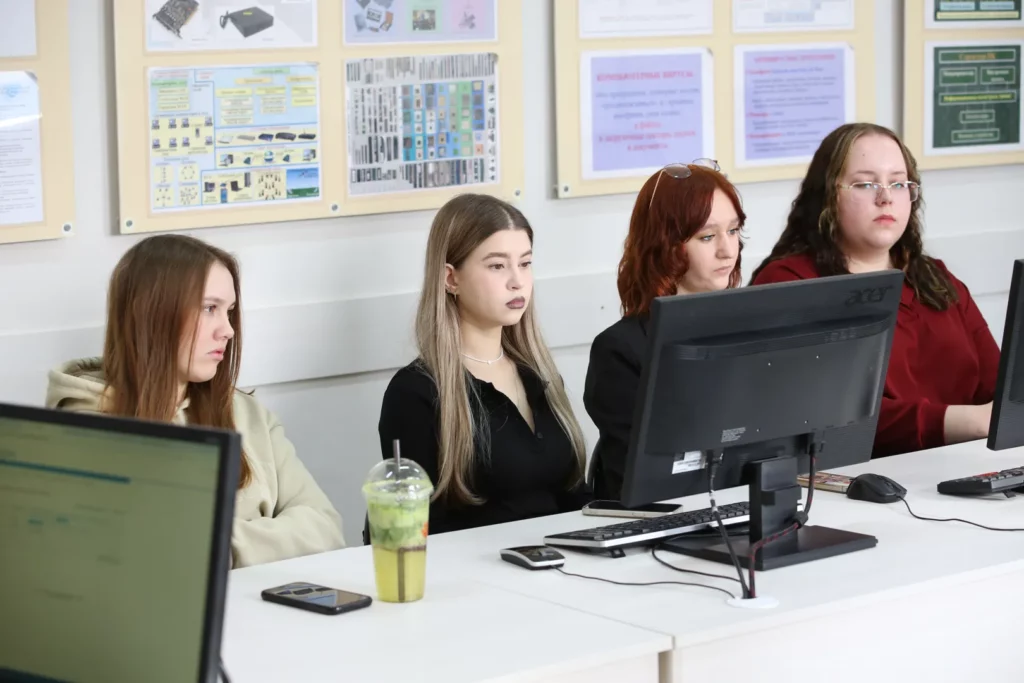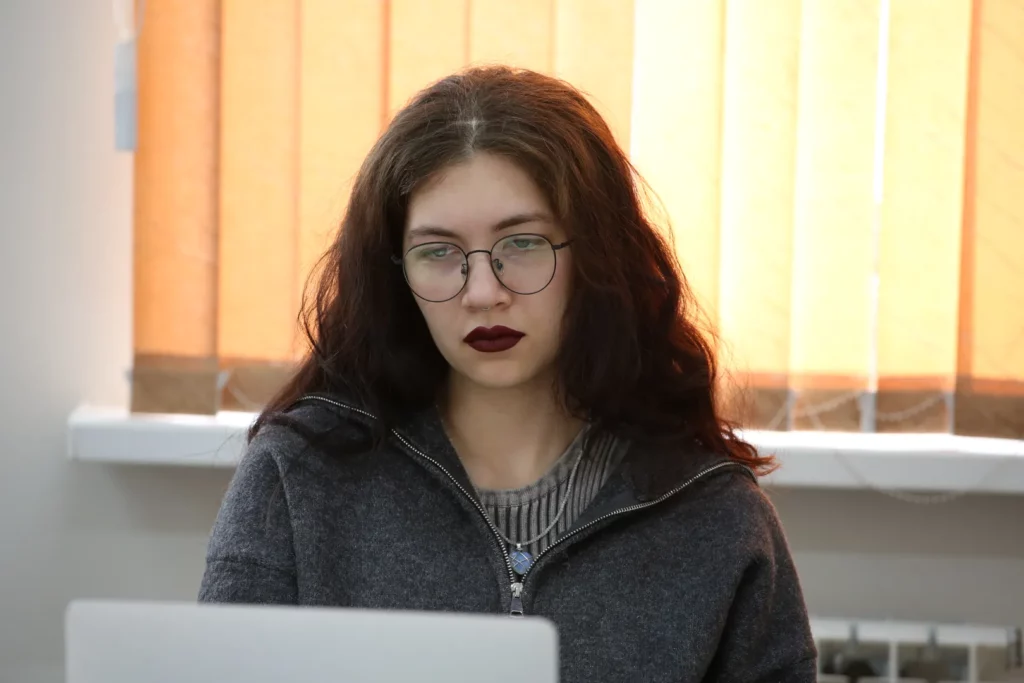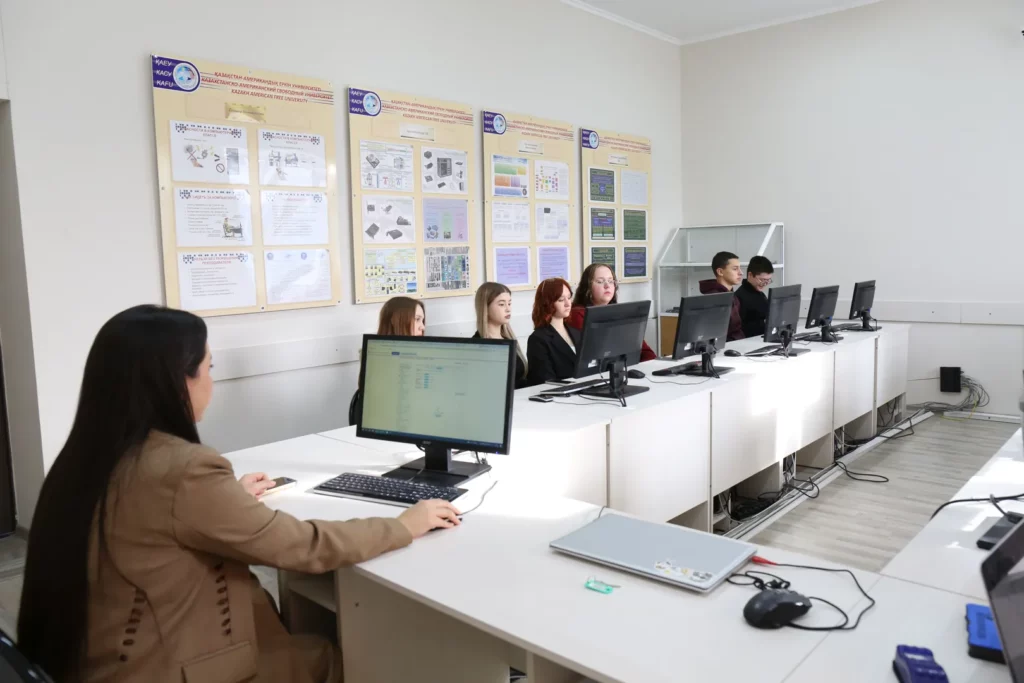Seminar on Digital Educational Platforms
On November 13, 2024, Aigerim Baurzhankyzy, a teacher of the Department of Pedagogy and Psychology of the Kazakh-American Free University, held a seminar on the topic “Basics of Working with Digital Educational Platforms in the School Process in Kazakhstan: Features of Using Kundelik.kz, BilimLand and Online Mektep”.
The seminar was organized within the framework of the discipline “IT Technologies in Education” and is aimed at studying the practical aspects of working in automated information systems such as Kundelik.kz, Online Mektep and BilimLand. Students of the educational programs “Pedagogy and Methodology of Primary Education”, “Russian Language and Literature,” “Kazakh Language and Literature,” and “Physical Education and Sports” had a unique opportunity to get acquainted with modern digital tools actively used in the school process in Kazakhstan.
During the seminar, Aigerim Baurzhankyzy explained to the students in detail the standards and regulations for working in these systems. She focused on the practical features and rules of interaction with platforms that future teachers need for effective use in educational activities. After the theoretical part, students had the opportunity to ask questions, which allowed them to better understand the nuances of working with digital educational resources.
Aigerim Baurzhankyzy is a graduate of KAFU in the EP “Russian Language and Literature” (bachelor’s and master’s degrees), as well as deputy director of “Secondary School No. 18” of the education department of the city of Ust-Kamenogorsk. She is an experienced teacher and moderator who actively introduces modern educational technologies into the educational process.
This seminar is part of the work on the dual education system, which involves close cooperation between educational institutions and educational institutions on the ground. It is important to note that this form of interaction contributes to practice-oriented learning, when students not only receive theoretical knowledge, but also have the opportunity to get acquainted with the real working conditions in educational institutions. This interaction between the university and the school helps to develop future teachers’ competencies that meet modern educational requirements and technological challenges.
We thank Aigerim Bauyrzhankyzy and all the participants of the seminar for their active participation and fruitful cooperation!
Department of Pedagogy and Psychology
